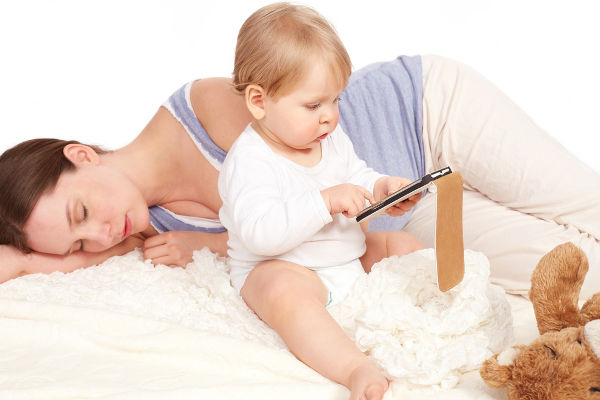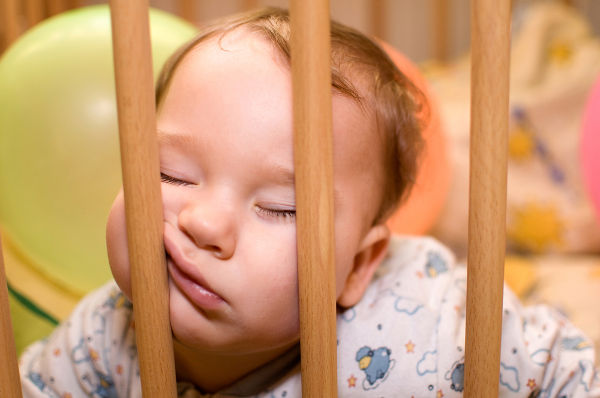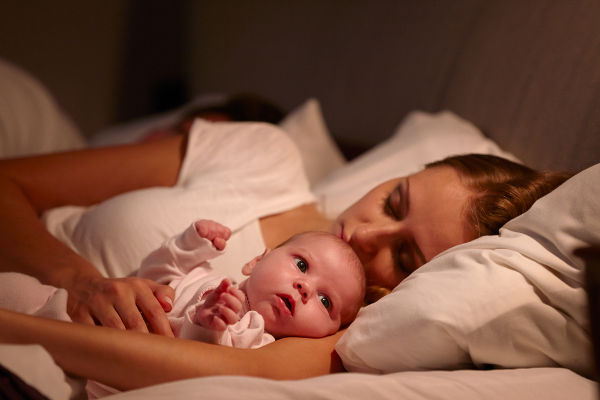At four months old, just when you think your baby has got a routine that involves sleeping for longer periods at night and you are starting to feel less like a zombie and more like a normal functioning human being, your baby throws a spanner in the works and everything becomes confused again. Your lovely calm baby, who was previously waking only once or twice during the night for a feed and then settling back down again seems to have reverted back to her new-born behaviour.
Your nights once more involve spending hours rocking and shushing and when your baby does eventually fall asleep it is on you, in an awkward position that leads to cramp in your arm. What’s more, you know that if you try to move her it will result in more cries and you will need to start rocking and shushing again.
The Science Bit

Referred to as the Four Month Sleep Regression, this is a period in your baby’s development when her sleep cycles change to something that more closely resembles that of an adult. When new-borns fall asleep they go straight into a deep sleep and remain that way until they wake up.
At around four-months old developments in the brain mean that babies start sleeping in cycles, in the same way that adults do with periods of lighter and deeper sleep. It is during these lighter periods of sleep that your baby will likely wake and will need help getting back to sleep. You will also find that your baby is less likely to sleep just about anywhere, and is disturbed more when you try and move her whilst she is asleep.
Signs You Might Be Experiencing the Four Month Sleep Regression

Of course, if your baby isn’t sleeping, then neither are you. During the four-month sleep regression you may experience any of the following symptoms:
- Your pre-schooler has to point out that you are trying to dress him in your four-month old baby’s clothing.
- You have to do two supermarket trips. One where you buy lots of coffee and chocolate. The second where you buy everything you forgot the first time round.
- You have developed an eye twitch from all the excessive caffeine.
- You avoid any conversation about sleep at your Parent and Child group because you know that if you engage in the topic, you may just have a nervous breakdown.
- Your diet largely consists of takeaways and beans on toast because even if you did have the energy to cook a healthy and nutritious meal you forgot half the ingredients when you went to the supermarket for the second time.
- You lose your house keys about five times a day. Most of the time you find them in the lock on the outside of the door.
- You have to check, double check, and triple check the amount of children in your car in case you have forgotten one.
- Can’t find your mobile phone? That’s because it’s in the washing machine, along with your house keys.
- You have used formula powder instead of coffee whitener in your coffee. You didn’t care, because caffeine.
- You have fallen asleep on the toilet. The energy you got from the powernap was completely worth the numb feeling in your bottom.
What Can I Do to Help My Baby Sleep Better?

Around about now is a good time to start thinking about sleep training. Every time your baby enters a lighter cycle of sleep there is a good chance she will wake. She now needs to learn how to get back to sleep, preferably without your help. There is no “one size fits all” here, instead you have to find what works best for you and your baby. Check out our article on When Do Babies Sleep Through The Night for some ideas on sleep training, and in the meantime, stock up on caffeine!




